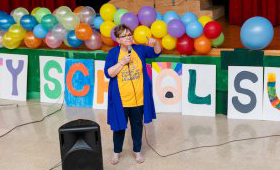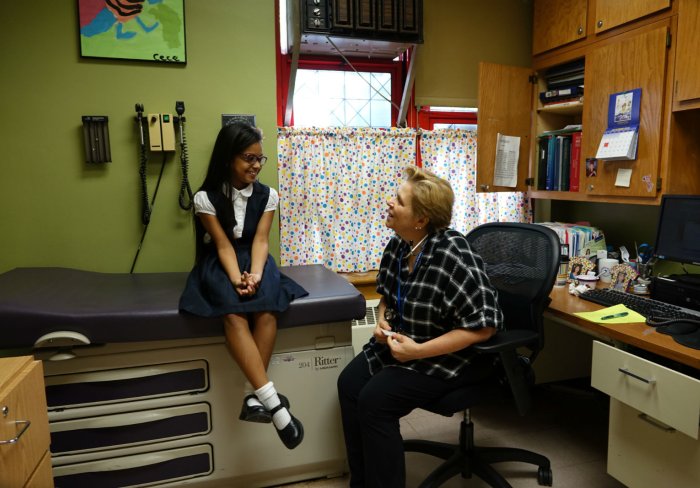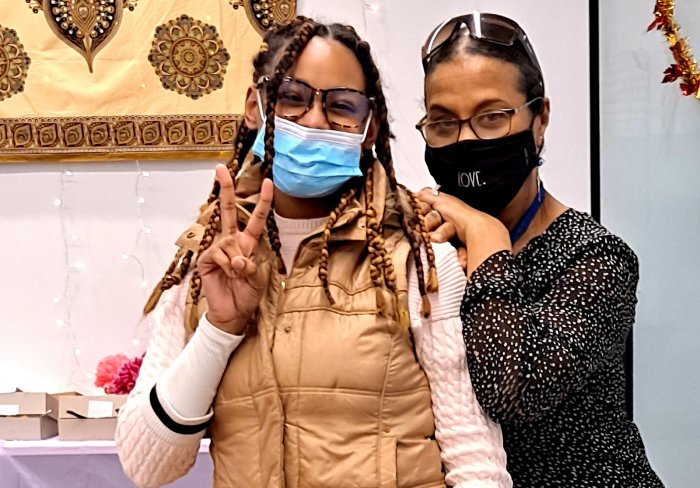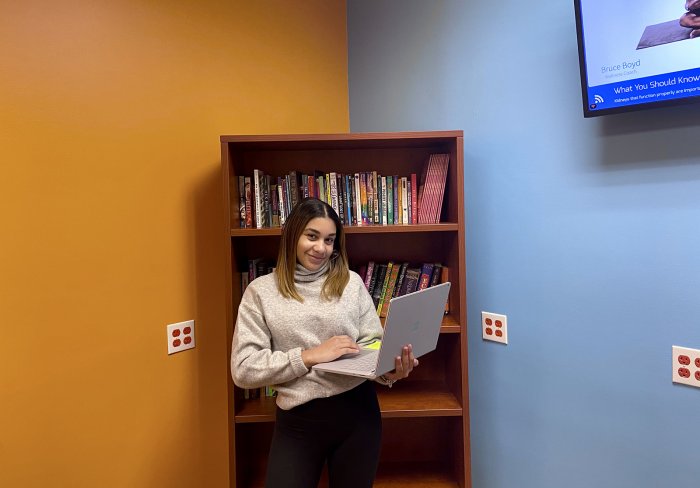A new, landmark study by the Learning Policy Institute and the National Education Policy Center finds that well-implemented community schools improve educational outcomes for children in high-poverty communities.
The finding will be discussed at a symposium on Thursday, December 14, from 8:30 a.m. to 10:00 a.m. in the Joyce B. Cowin Auditorium at Teachers College. The event will feature New York City Schools Chancellor Carmen Fariña; Betty Rosa, Chancellor of the New York State Board of Regents; UCLA Presidential Professor Emeritus Jeannie Oakes and other leading scholars, policymakers, and practitioners.
Jeannie Oakes will deliver the keynote address at the event, which is co-sponsored by Teachers College and Children’s Aid. Co-author of the study, “Community Schools: An Evidence-Based Strategy for Equitable School Improvement,” and a Senior Fellow at the Learning Policy Institute, Oakes will describe current research and discuss its importance for school, district, and state leaders as they evaluate the success of community schools in four areas: integrated student supports, expanded learning time and opportunities, family and community engagement, and collaborative leadership and practices.
“Teachers College is a very appropriate venue for this discussion,” said Nancy Streim, Associate Vice President for School and Community Partnerships and Special Advisor to the Columbia University Provost. “TC created its first community school in 1902, and our faculty today includes leading voices on policies and practices that improve the odds for children in high-poverty schools."
“Community school strategies hold considerable promise for creating good schools for children living in poverty. This is very positive news in the face of growing achievement and opportunity gaps, and, particularly, at a moment when states and local districts have more flexibility in their use of federal dollars,” Oakes says.
New York City Schools Chancellor Carmen Fariña will frame the discussion with introductory remarks. Moderated by President Susan H. Fuhrman of Teachers College, panelists will discuss the future of community schools in New York City and New York State, as well as the new study.
The report, a compilation and analysis of earlier research, confirms that community schools are successful in raising achievement in low-income schools.
The panel will include:
- Betty Rosa, Chancellor of the New York State Board of Regents
- Carolyn Riehl, Associate Professor of Sociology and Education Policy, Teachers College
- Christopher Caruso, Executive Director of Community Schools, New York City Department of Education
The panel will address issues critical to the expansion of community schools in New York City and New York State, such as costs and funding, changes in school organization and practices, equitable allocation of resources, and alignment of academic and student support services.
Community schools offer social services and other supports to students and their families, such as preventive health care and nutrition counseling. They also help parents with job training, and legal and housing assistance. The study confirms that not only do these social and health services support students’ general well-being, community schools can also boost academic achievement by providing expanded learning time and opportunities, engaging the family and community in students’ academic work and as leaders in the school, and supporting collaborative leadership and practices.
The authors of the LPI report, including Oakes, Anna Maier of the Learning Policy Institute, and Julia Daniel of the National Education Policy Center, write that “the evidence base on well-implemented community schools and their component features provides a strong warrant for their potential contribution to school improvement. Sufficient evidence meeting [federal] criteria for ‘evidence-based’ approaches exists to justify including community schools as part of targeted and comprehensive interventions in high-poverty schools,” as well as using community schools as a model for “broader use.”
For more information and to register for the symposium, go here.
Teachers College and Children’s Aid are leaders in the community school movement in New York City and State. In 2011, Teachers College, through its Office of School and Community Partnerships, established the Teachers College Community School in Harlem. Beginning in 2012, its REACH initiative (Raising Educational Achievement Coalition of Harlem) has implemented community school programming in six Harlem schools.
Children’s Aid launched its first New York City community school in March 1992 and, since that time, has been a leader in the community schools field locally and nationally. Children’s Aid currently serves as the lead agency in 22 New York City community schools, working in partnership with the New York City Department of Education. In addition, Children’s Aid operates the National Center for Community Schools, which provides training, consultation, coaching, and resource materials to colleagues across the country who want to implement the community schools strategy. Several external evaluations have documented the results of Children’s Aid’s community schools; the most recent was a Social Return on Investment study, conducted by the Finance Project and funded by the W.K. Kellogg Foundation, which showed a greater than $11 return for every dollar invested in Children’s Aid’s community schools.







